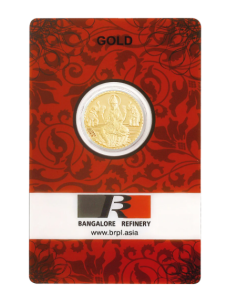Exclusive Deals & Trending Items


Muthoot Pappachan Swarnavarsham Gold BIS Hallmarked Lakshmi Pendant of 1 gms in 22 KT 916 Purity Fineness
Shop NowThe COVID-19 pandemic changed global trade, including gold smuggling trends. This has been a big worry for countries like India.
Customs data became key to understanding these changes. It shows a big drop in gold smuggling after July 2024. This is mainly because of the lower import duty.
This shift offers insights into how policy changes affect customs data and trade.
Key Takeaways
- Lower import duty in July 2024 cut down gold smuggling.
- Customs data is vital for grasping post-COVID trade trends.
- Policy changes can greatly influence trade practices.
- The pandemic showed the importance of strong customs monitoring.
- India’s experience can guide global trade policy updates.
The Resurgence of Gold Smuggling in a Post-Pandemic World
After the COVID-19 pandemic, a worrying trend has appeared: gold smuggling is back. The lockdowns and trade issues caused by the pandemic first slowed down illegal gold trade. But as the world opened up and gold demand rose, smuggling quickly picked up again.


How COVID-19 Disrupted Illegal Gold Trade Patterns
COVID-19 changed how goods moved around the world, including illegal gold. Lockdowns, closed borders, and fewer flights made it hard to smuggle gold. Many smuggling paths were blocked, and usual trafficking routes were cut off. This led to a drop in gold smuggling.
To see how COVID-19 affected gold smuggling, let’s look at some numbers:
| Year | Gold Seizures (in kg) | Change from Previous Year |
|---|---|---|
| 2019 | 100 | – |
| 2020 | 60 | -40% |
| 2021 | 120 | +100% |
The Perfect Storm: Economic Factors Driving Current Smuggling Activities
The rise in gold smuggling is due to economic reasons. High gold prices, taxes, and price gaps between countries have made smuggling appealing. In places like India, high taxes on gold imports make smuggling a tempting choice for many.
Economic Factors:
- High gold prices
- Duty structures
- Price differentials
Knowing these economic drivers is key to fighting gold smuggling. By tackling the economic reasons behind smuggling, officials can create better ways to stop it.
Gold Smuggling Trends: A Data-Driven Analysis of Post-COVID Patterns
Looking at customs data after COVID helps us see how gold smuggling has changed. As the world gets back on its feet, knowing these changes is key for everyone involved.
Key Metrics and Statistics from Global Customs Authorities
Customs data worldwide shows some interesting facts about gold smuggling after COVID. Some of the key metrics include:
- A big drop in gold smuggling cases after July 2024, as global customs reports.
- Changes in how smugglers move gold, with more use of clever hiding tricks.
- Different amounts of gold seized in various places, showing the need for global teamwork.


Comparing Pre and Post-COVID Seizure Data
Looking at seizure data before and after COVID, we see some patterns. Before the pandemic, gold smuggling was going up, thanks to economic reasons. But during the pandemic, it went down because of broken supply chains and tighter border checks.
Some important points from this comparison are:
- A jump in gold smuggling at the start of the recovery, as gold demand went up.
- A drop in smuggling cases as customs got better at catching new tricks.
- New ways to smuggle gold have come up, making it important for police to stay alert.
By studying these trends, we can learn more about gold smuggling. This helps us find ways to stop it more effectively.
India’s Position in the Global Gold Smuggling Ecosystem
India is a big player in the global gold smuggling scene. Its huge demand for gold and strict rules make it a prime target for smugglers.
Why India Remains a Prime Destination for Smuggled Gold
India’s love for gold and its high demand make it a perfect spot for smugglers. The country’s gold use is among the highest worldwide. This is due to both cultural and economic reasons.
Key factors contributing to India’s appeal for gold smugglers include:
- High demand for gold in jewelry and investment
- Significant price differentials between international and domestic markets
- Complex regulatory framework governing gold imports
The Role of Duty Structures and Price Differentials
Duty structures and price gaps are big drivers of gold smuggling in India. The high import duties on gold lead to a price gap between the international and domestic markets. This makes smuggling very profitable.
| Factor | Impact on Gold Smuggling |
|---|---|
| Duty Structures | High import duties encourage smuggling to avoid taxes |
| Price Differentials | Significant price differences between international and domestic markets drive smuggling |
It’s key for policymakers and law enforcement to grasp these points. They need to come up with strong plans to fight gold smuggling in India.
Major Gold Smuggling Routes into India Post-2020
Since 2020, gold smuggling into India has changed. New routes have appeared. This is because of changes in global trade and travel.
Shifting Patterns in Air Transport Smuggling
Air transport is still a big way to smuggle gold into India. Smugglers now hide gold in luggage or on themselves. Customs authorities have seen more gold smuggling attempts at airports, especially from Middle Eastern countries.
Gold smuggling by air is driven by India’s high demand and the chance for big profits. Smugglers keep finding new ways to avoid being caught. This makes it hard for authorities to keep up.
| Airport | Number of Seizures | Gold Quantity (kg) |
|---|---|---|
| Delhi | 120 | 250 |
| Mumbai | 150 | 300 |
| Chennai | 90 | 180 |
Land and Sea Routes: New Developments and Challenges
Land and sea routes are also key for gold smuggling into India. The borders with neighboring countries are often used by smugglers. Maritime smuggling has increased, with gold hidden in cargo or on ships.
It’s hard for authorities to watch these routes because of their complexity and the large areas involved. They need advanced technology and intelligence to fight smuggling on these routes.
Evolution of Gold Smuggling Techniques After the Pandemic
After the pandemic, gold smuggling has changed, making it harder for customs to catch smugglers. The world of gold smuggling has seen big changes since COVID-19. Smugglers have found new ways to move gold because of economic shifts and changes in trade.
Traditional Methods That Still Prevail
Even with new tricks, old ways of smuggling gold are still around. People hide gold in their luggage, inside electronics, or in secret spots in cars. They use these methods at busy border spots and airports, where it’s easy to blend in.
Innovative Concealment Strategies Detected by Customs
Customs have seen more clever ways to hide gold. These include:
Body Concealment Methods
Smugglers hide gold in their clothes or even on their bodies. They use special vests or make gold look like body parts to sneak it past inspectors.
Luggage and Cargo Innovations
Smugglers find creative spots to hide gold in luggage and cargo. They use fake bottoms in bags, hide gold in sealed food, or put it in craft items to avoid suspicion.
To show how tricky these methods are, here’s a table of common ways to hide gold:
| Concealment Method | Description | Detection Challenges |
|---|---|---|
| False Compartments | Hidden spaces within luggage or vehicles | Requires thorough inspection |
| Body Concealment | Gold hidden on or within a person’s body | Invasive searches required |
| Cargo Modifications | Gold embedded within or hidden among legitimate cargo | High volume of cargo makes detection difficult |
As customs get better at catching smugglers, the game between them and law enforcement keeps going. Knowing how smugglers work is key to stopping them.
Profile of Modern Gold Smugglers: Who’s Behind the Trade
Today’s gold smugglers come from all walks of life. They range from lone couriers to big criminal groups. The world of gold smuggling has changed a lot. This is due to new global trade rules, economic shifts, and tech progress.
From Individual Carriers to Organized Syndicates
The gold smuggling scene has moved from solo players to big syndicates. These groups are very smart at hiding their tracks. They work in many countries, using price and rule differences to their advantage.
With syndicates on the rise, gold smuggling has grown bigger and more complex. These groups often tie up with other illegal activities. This makes them a big worry for police.
The Changing Demographics of Gold Couriers
The people smuggling gold have changed too. Old days were about young, often poor, people. Now, groups are picking from a wider range of people.
| Demographic Characteristics | Traditional Couriers | Modern Couriers |
|---|---|---|
| Age Range | Typically younger individuals | Diverse age groups |
| Recruitment Method | Often coerced or deceived | Varied, including voluntary participation |
| Background | Usually from economically disadvantaged backgrounds | From various socio-economic backgrounds |
This change shows how gold smuggling groups are getting better at avoiding the law. They’re also finding new ways to make money.
High-Profile Gold Smuggling Cases Since 2021
Since 2021, Indian authorities have been working hard to stop gold smuggling. They have found many big cases that show how clever smugglers are. These cases also show the hard work customs officials do and how smugglers keep changing their ways.
Major Busts at Indian Airports and Border Crossings
Indian airports and border crossings are key places for gold smuggling. Customs officials have caught many big cases. This shows how careful they are and how tricky smuggling can be.
Airport Interceptions
At big Indian airports, customs have stopped many gold smuggling tries. For example, in 2022, someone tried to sneak gold in their luggage at Kempegowda International Airport in Bengaluru. The gold was hidden in special spots in the bags.
At Chennai International Airport, a woman was caught with gold bars in her clothes. These stories show how sneaky smugglers can be.
Land Border and Seaport Seizures
Gold smuggling happens at airports, but also at land borders and seaports. At the Wagah-Attari border, customs found gold bars in a truck’s fuel tank. This shows how clever smugglers can be.
At Indian seaports, gold has been smuggled in cargo ships. In one case, gold was found in containers that looked like machinery parts. This shows how tricky smugglers can be.
Lessons Learned from Successful Interceptions
Indian customs have been very good at catching gold smugglers. They use new technology and smart ways to find out who might be smuggling. This has helped them stop many smuggling tries.
These big cases are a warning to others who might try to smuggle gold. They show how important it is for law enforcement to keep working together to stop gold smuggling.
The Economic Impact of Illegal Gold Trade on India
The illegal gold trade in India has many effects. It leads to lost revenue and hurts honest businesses. This hidden trade avoids legal rules, causing big economic problems.
Revenue Losses and Market Distortions
Illegal gold trade costs the government a lot of money. Gold smuggled in doesn’t pay import duties or taxes. This means the government has less money for public services.
It also makes it hard for honest businesses to compete. Smuggled gold is often cheaper, which can hurt businesses that follow the law.
Key effects of revenue losses and market distortions include:
- Reduced government revenue
- Unfair competition for legitimate businesses
- Potential job losses in the formal gold trading sector
Effects on Legitimate Gold Businesses and Consumers
Honest gold businesses struggle with the illegal trade. They pay taxes and follow rules but face tough competition. Smuggled gold is cheaper because it avoids taxes.
Consumers also suffer. The presence of illegal gold makes it hard to trust the market. This can lead to buying low-quality gold without knowing.
The consequences for consumers and legitimate businesses can be severe, including financial losses and erosion of trust in the gold market.
Connection Between Gold Smuggling and Other Illicit Activities
Gold smuggling is more than just avoiding taxes. It often leads to serious financial crimes. The ties between gold smuggling and other illegal acts are complex. They involve many people and groups.
Money Laundering Through Gold Channels
Money laundering is a big connection to gold smuggling. Gold is a top choice for washing dirty money because it’s private and easy to move. Criminals use gold to hide their money, taking advantage of price and rule differences in countries.
In places like India, where gold is in high demand, smuggled gold is sold easily. The money made from this can then be washed through the financial system.
So, law enforcement is now looking at how gold trade and money laundering meet. They’re making stricter rules for gold sellers and jewelers to stop these crimes.
“The use of gold in money laundering schemes is a significant concern for authorities worldwide.”
Links to Terrorism Financing and Organized Crime
Gold smuggling also ties to terrorism financing. Terror groups use the black gold market to fund their actions. Organized crime groups also get involved, using gold smuggling profits for their crimes.
This shows we need a united effort to fight these problems. Lawmakers must work together to break these networks and stop gold from being used for bad things.
Technological Advancements in Customs Detection
Technology is changing how customs catch and stop gold smuggling. New tools make customs work better and faster.
New Scanning and Detection Equipment
Customs now use top-notch scanning and detection tools. These include advanced X-ray and gamma-ray scanners. They can find gold hidden in dense materials.
Container scanning technology lets them check cargo without unloading it. This cuts down on waiting times.
A customs official said, “The new scanning tools have changed the game against gold smuggling. They’re like super eyes that see through everything.”
Data Analytics and Risk Profiling in Customs Operations
Data analytics is key in customs work today. It helps spot patterns that might show smuggling. Risk profiling helps focus on high-risk items and people.
Data analytics in customs includes:
- Looking at past data for smuggling clues
- Watching real-time data for odd activities
- Working with other agencies to share info
This way, customs can tackle threats better. It makes it harder for smugglers to hide their activities.
Policy Responses and Regulatory Changes
As gold smuggling rises worldwide, governments are changing their policies. They need to make new rules to stop this illegal trade. This is because gold smuggling hurts real businesses and government money.
Recent Amendments to Gold Import Regulations in India
India, a big gold user, faces gold smuggling issues. The government has made new rules for gold imports to fight this. These rules include stricter checks on gold coming in and more watch at ports.
- Tighter regulations on gold import documentation
- Increased surveillance at ports and borders
- Penalties for non-compliance with new regulations
These steps aim to stop smugglers and lessen the lure of gold smuggling.
International Cooperation in Combating Gold Smuggling
Stopping gold smuggling needs global teamwork. Smuggling rings span many countries, so sharing info and methods is key.
“International cooperation is key to disrupting the global networks that facilitate gold smuggling.” –
Recently, customs, police, and financial groups from various nations have teamed up. This teamwork is vital for spotting and breaking up smuggling rings.
Through joint efforts, countries can craft better plans to fight gold smuggling. This helps protect their economies and keeps the global gold market honest.
What You Should Know About Anti-Money Laundering Measures in Gold Trade
To stay safe and follow the law in the gold market, knowing about anti-money laundering is key. The gold trade is a big area where anti-money laundering (AML) rules are very important. They help stop illegal activities.
If you buy or sell gold, knowing these rules helps you follow the law. It also helps you make better choices.
Compliance Requirements for Gold Dealers and Jewelers
Gold dealers and jewelers must follow strict rules to stop money laundering. These include:
- Verifying the identity of customers
- Maintaining records of transactions
- Reporting suspicious activities to the relevant authorities
The Financial Action Task Force (FATF) says, “Countries should make sure beneficial ownership information is available to the right authorities.”
How You Can Ensure You’re Buying Legitimate Gold
To buy real gold, look for dealers who follow AML rules. Here are some tips:
- Check if the dealer is registered with the right bodies
- Ask for proof of the gold’s origin
- Be careful of deals that seem too good to be true
By being careful and informed, you help make the gold trade cleaner and more open. Your actions as a buyer can really help.
Conclusion: The Future of Gold Smuggling Trends
As we move past the pandemic, gold smuggling trends are changing. Customs data shows a complex picture of smuggling, driven by economic factors and trade shifts. The drop in import duty has greatly affected these trends, making it a key factor now.
The future of gold smuggling will be influenced by changes in global trade, the economy, and new detection technologies. Customs will keep up with smugglers’ new methods. This ongoing battle will shape how we fight gold smuggling, as discussed in this article.
It’s vital for policymakers, law enforcement, and consumers to understand these trends. By keeping up with gold smuggling news, you can help make the gold market more open and regulated.



















